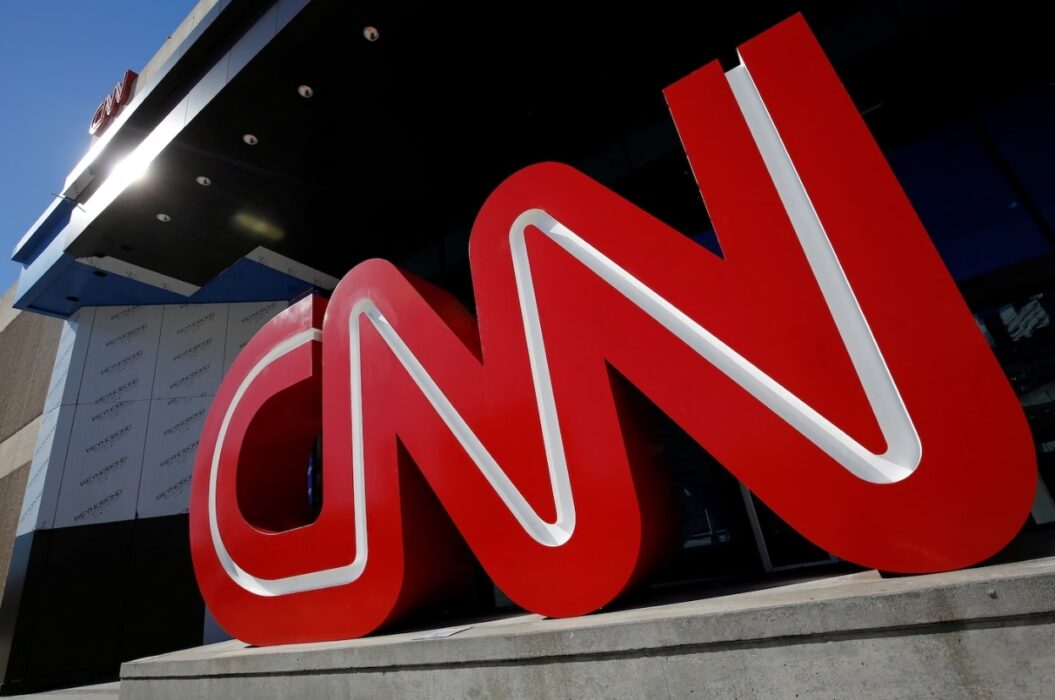Alright, folks, buckle up because this story has all the makings of a courtroom thriller, and it’s unfolding in real-time. Navy veteran Zachary Young is taking on CNN in a $1 billion defamation lawsuit that could leave the network scrambling for more than just a damage-control strategy. This isn’t just a legal spat; it’s a showdown that pits reputation against ratings, facts against theater, and a man’s career against what he calls reckless journalism.
Here’s the setup: back in November 2021, CNN aired a segment on “The Lead” with Jake Tapper, where correspondent Alex Marquardt dove into the chaotic aftermath of the U.S. withdrawal from Afghanistan. The report accused individuals—Young included—of exploiting desperate Afghans by demanding exorbitant fees to help them escape the Taliban-controlled country. The network’s teaser alone set the tone, with Tapper framing the story as one of Afghans being "preyed on" in a volatile black market.
They're showing a message from CNN's Alex Marquardt where he falsely claims he "tried calling you last week but you didn't pick up."
"We are going to be running a piece in which we detail your interactions with people inquiring about your services..." Marquardt told him. pic.twitter.com/QCYbXMoktJ— Nicholas Fondacaro (@NickFondacaro) January 8, 2025
Young says the story was a hit job, plain and simple. His lawsuit, now unfolding in a Florida courtroom, claims CNN’s report destroyed his reputation and livelihood. Let’s not gloss over the fact that the presiding judge, William S. Henry, has already ruled that Young “did not act illegally or criminally” and never took money from Afghans. That’s a big deal, folks—because CNN’s narrative suggested otherwise.
The heart of Young’s case? A paper trail of internal messages reportedly shows that CNN knew their story had “holes like Swiss cheese” before it even aired. Young’s attorney, Kyle Roche, isn’t holding back. He blasted CNN for prioritizing ratings over truth, accusing the network of knowingly running a piece that was “80 percent emotion and 20 percent obscured fact.”
"That's definitely not a realistic deadline. In any case, I can tell you for sure, some of your facts/assertions for not accurate, and it they are published, i will seek legal damages," Young warned CNN's Alex Marqardt.
The warning was not heeded. pic.twitter.com/fLwCNb3M9K— Nicholas Fondacaro (@NickFondacaro) January 8, 2025
The jury also saw a series of texts between Marquardt and Young. In them, Marquardt gave Young a mere two hours to respond to complex allegations—a deadline Young called unreasonable. Despite Young’s warnings about inaccuracies and threats of legal action, CNN pressed forward. The fallout for Young? Devastating. He testified about spiraling into daily panic attacks, needing therapy, and seeing his professional reputation obliterated. Attempts to assist with evacuations in Sudan were met with public backlash fueled by CNN’s report, according to Young.
CNN’s legal team, led by David Axelrod, is fighting back, but some of their tactics are raising eyebrows. For instance, Axelrod questioned Young about an old resume where he touted his ability to handle stress—a line of questioning that seems designed to chip away at Young’s claims of emotional distress. Whether it lands with the jury remains to be seen.
Freedman and Young's exchange on how the CNN report hurt his ability to support his family:
"Have you worked since the CNN broadcast?"
"No."
"Have you made any money since the CNN broadcast?"
"No."— Nicholas Fondacaro (@NickFondacaro) January 8, 2025
This case isn’t just about one man’s reputation—it’s a referendum on journalistic integrity. If Young’s claims hold up, it could spell trouble for CNN, a network already under scrutiny in the ever-polarized media landscape. And let’s be honest, a $1 billion lawsuit is the kind of wake-up call that no newsroom wants.

